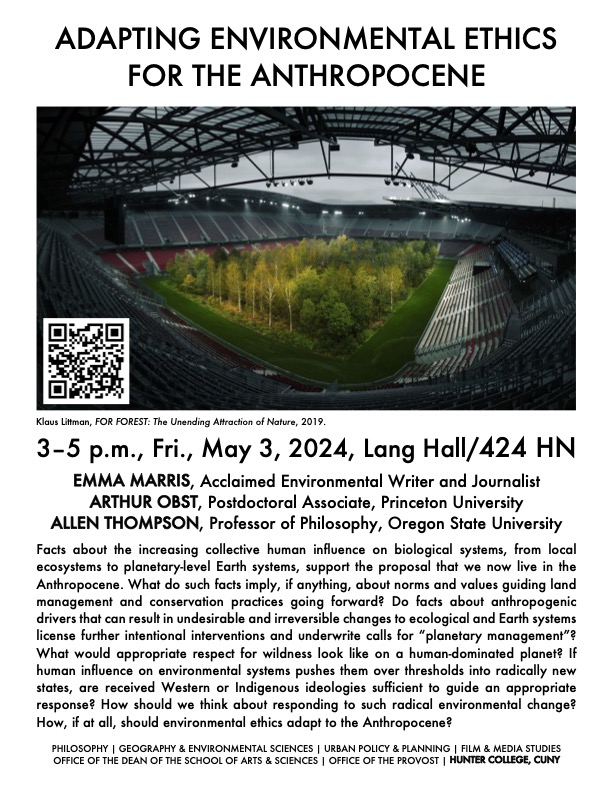Efforts to diversify philosophy, at the curricular level, often focus on increasing the content covered in a semester: i.e., making room for more women on the syllabus, making room for more non-Western texts and thinkers, etc. Similarly, efforts to diversify philosophy, at the professional level, often focus on making room for marginalized topics and/or members of under-represented groups at conferences, in anthologies, and among faculty (both in terms of demographics and research specializations). This all serves to create an antagonistic situation where marginalized voices must fight to be heard and those in the discipline must make “tough choices” about where to cede precious resources such as syllabus space, publication credits, and faculty hires. I suggest that part of the antagonism, at least in the case of Asian philosophy, arises because we are trying to fit non-European texts and thinkers into disciplinary structures that are themselves designed to accommodate a Eurocentric model for philosophy. By “disciplinary structures” I mean the philosophical canon and historical narrative as well as departmental course offerings, curricular requirements for majors and minors, classroom pedagogical practices, and academic research methodologies. Truly transformative change must take place at the structural level. In this brief talk, I consider the scope of such changes, in concrete terms, and raise questions about the effects these changes would have on the disciplinary identity of philosophy as we know it today.
With a response from:
Andrew Lambert (College of Staten Island, CUNY)
Scholars working under the broad umbrella of New Materialism have offered compelling reappraisals of the ways in which we know, interact with, and exist in the world. This scholarship also intersects with recent work on music and sound, which raises rich sets of questions regarding human agency, material, ethics, aesthetics, embodiment, and the subject/object dichotomy, among other issues.
We invite scholars working in the humanities, arts and sciences to submit proposals for papers and performances that engage with the themes of sound and new materialism, broadly construed. We welcome work that adopts historical, technological, analytical, philosophical, materialist, and creative vantage points, among others. Overall, this conference will direct these diverse disciplinary and methodological perspectives towards convergent and critical issues, creating new, interdisciplinary lines of enquiry and generating original research.
The one-day conference will consist of panels that comprise of papers with short reflections by a moderator, as well as an evening concert that includes opportunities for discussion. The concluding concert of work that engages with these themes from creative perspectives will afford attendees with an opportunity to consider and discuss issues concerning sound, material, and agency in a forum that contrasts with, but also complements, our events during the day. Conference participants are strongly encouraged to attend both the daytime and evening portions of the conference.
Proposals are called for:
Paper presentations of 20 minutes with 10 minutes of Q&A.
Artistic presentation of 20 minutes with 10 minutes of discussion
Submission: Proposals of no more than 500 words (300 words for artistic presentation) should be submitted as a PDF by August 14th 2019 to jc5036@columbia.edu
and include “NMAS Submission” in the subject line. If you’re applying for an artistic presentation please include three representative 2 minute audio/video examples. Please also include the title of your proposed paper and anonymize your submission. Include your name, affiliation, and contact information in the body of the email, and also nominate any audio/visual requirements for your paper or performance.
Facts about the increasing collective human influence on biological systems, from local ecosystems to planetary-level Earth systems, support the proposal that we now live in the Anthropocene. What do such facts imply, if anything, about norms and values guiding land management and conservation practices going forward? Do facts about anthropogenic drivers that can result in undesirable and irreversible changes to ecological and Earth systems license further intentional interventions and underwrite calls for “planetary management”? What would appropriate respect for wildness look like on a human-dominated planet? If human influence on environmental systems pushes them over thresholds into radically new states, are received Western or Indigenous ideologies sufficient to guide an appropriate response? How should we think about responding to such radical environmental change? How, if at all, should environmental ethics adapt to the Anthropocene?
